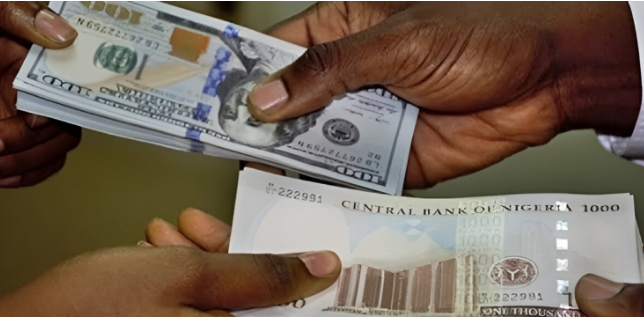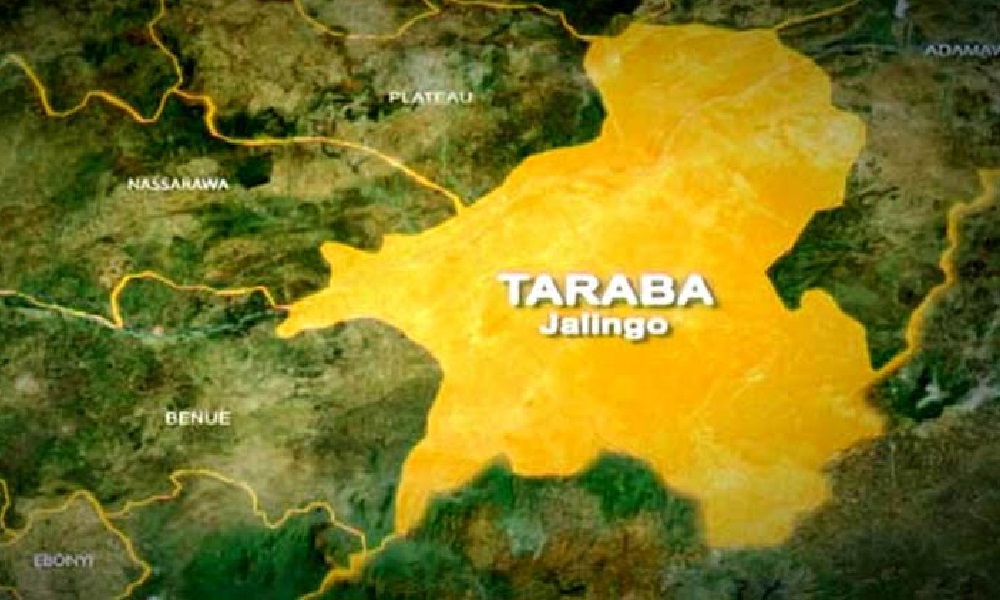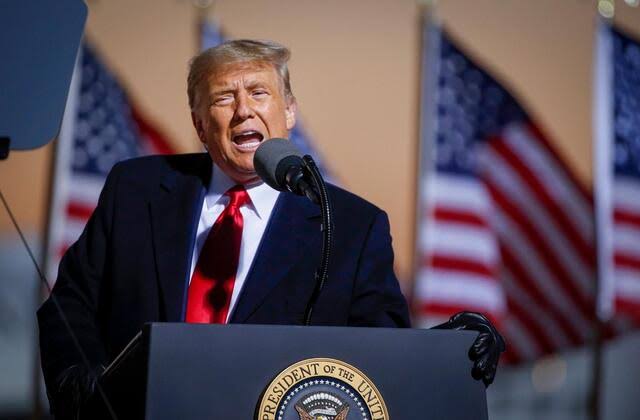News
SEE Dollar to Naira Exchange Rate at Black Market for July 24, 2024

By Kayode Sanni-Arewa
The dollar to naira exchange rate is a significant concern for many Nigerians, especially those involved in foreign trade, travel, and investments. The Dollar to Naira black market, also known as the parallel market or Aboki FX, often presents different rates compared to the official Central Bank of Nigeria (CBN) rates. This article delves into the current Dollar to Naira exchange rates for today July 24, 2024, factors influencing these rates, and the implications for Nigeria’s economy.
*Dollar to Naira Today Black Market.*
Current Black Market Dollar to Naira exchange rate.
Buying Rate: N1588
Selling Rate: N1590
*Official CBN Rates*
Buying Rate: N1639
Selling Rate: N1640
*Understanding the Black Market for Forex*
*What is the Black Market?*
The black market refers to unofficial exchange channels where currencies are traded without government regulation. This market often provides more competitive rates due to the high demand and limited supply of foreign currencies.
*Why Do People Use the Black Market?*
People turn to the black market due to:
*Favorable Rates:* Often higher than official rates.
*Accessibility:* Easier to obtain foreign currency without stringent regulatory requirements.
*Factors Influencing Black Market Rates*
*Economic Policies*
Government decisions on interest rates,
inflation control, and forex regulations by the CBN directly affect the naira’s value. Policy adjustments aimed at stabilizing the naira impact the exchange rates.
*Supply and Demand*
* The availability of foreign currency versus its demand significantly influences exchange rates. A shortage of foreign currency or high demand leads to naira depreciation.
*Political Stability*
Geopolitical events and internal political stability affect investor confidence. Political unrest or uncertainty can cause the naira to depreciate, while stability strengthens it.
*Global Economic*
Conditions Global market conditions, such as oil prices, international economic trends, and global inflation rates, influence the naira’s value. A significant drop in oil prices, for instance, negatively impacts Nigeria’s economy.
*Comparing Official and Black Market Rates*
*Why the Disparity?*
Several factors contribute to the disparity:
*Supply and Demand:* Limited availability in the official market drives people to the black market.
*Regulatory Restrictions:* CBN imposes limits on forex availability, leading to higher black market rates.
*Economic Instability:* Fluctuations in oil prices and inflation prompt people to seek more favorable black market rates.
*Impact on the Economy*
High black market rates can:
*Inflation:* Increase costs for imported goods.
*Investment:* Deter foreign investment due to economic instability.
*Trade:* Benefit exporters while imposing higher costs on importers.
*Using the Parallel Market Safely*
*Tips for Transactions*
*Verify Rates:* Check reliable sources like Aboki FX for the latest rates. Reputable
*Dealers:* Engage with trusted Bureau De Change operators to avoid scams.
*Pounds and Euro to Naira Exchange Rates*
*Pounds to Naira (CBN Rates)*
Buying Rate: ₦2,139
Selling Rate: ₦2,140
*Euro to Naira (Black Market Rates)*
Buying Rate: ₦1,778
Selling Rate: ₦1,779
*Geegpay and Grey: Online Exchange Platforms*
*Geegpay Rates*
EUR (€): Buying at ₦1,690.03, Selling at ₦1,695.55
GBP (£): Buying at ₦1,950, Selling at ₦1,965
USD ($): Buying at ₦1,504, Selling at ₦1,570
*Grey Rates*
EUR (€): Buying at ₦1,640.03, Selling at ₦1,719
GBP (£): Buying at ₦1,902, Selling at ₦2,015
USD ($): Buying at ₦1,550, Selling at ₦1,570
*FAQs*
*How much is a dollar to naira today in the black market?* The buying rate is N1588, and the selling rate is N1590 as of July 24, 2024.
*Why does the black market offer higher rates than the CBN?* The black market rates are driven by supply and demand dynamics, regulatory restrictions, and economic instability.
*Is it legal to trade forex in the black market?* While the CBN discourages it, many engage in the black market due to the unavailability of sufficient forex through official channels.
*What are the risks of trading in the black market?* Risks include fluctuating rates, potential scams, and the legal gray area of such transactions.
*Can the CBN influence black market rates?* The CBN can influence these rates through monetary policy, forex interventions, and regulatory measures, but direct control is limited.
*How often do black market rates change?* Rates can change on a daily or even multiple times per day, depending on market conditions and economic news.
*Conclusion on Dollar to Naira Black Market Rate Today*
The black market dollar-to-naira exchange rate is a complex interplay of economic factors, regulatory frameworks, and market dynamics. While it provides an alternative for many Nigerians seeking forex, it also highlights the broader challenges and opportunities in Nigeria’s economic landscape. Understanding these rates and the factors influencing them is crucial for making informed financial decisions.
News
15 huts razed, one injured in renewed Jukun-Tiv violence

A fresh outbreak of ethnic violence between the Jukun and Tiv communities has erupted in Taraba State, with suspected Jukun militias launching an early-morning attack on Dekeh Village along the Wukari–Kente Road.
According to security sources available to Zagazola Makama, the incident occurred at approximately 1:00 a.m. on Tuesday.
About six armed assailants stormed the village, opening fire indiscriminately and setting 15 huts ablaze. The attack forced residents to flee in panic, leaving behind food items, including yam seedlings, which were destroyed in the blaze.
One resident identified as Mdue Saaondo, sustained gunshot injuries during the assault. He was rescued by a joint team of police and military personnel and transported to the Federal University Teaching Hospital in Wukari for medical treatment.
The Taraba State Police Command has launched an investigation to identify and apprehend those responsible. Authorities have also scheduled a security meeting with the Wukari Local Government Traditional Council as part of efforts to restore peace and encourage dialogue between the Tiv and Jukun communities, who have long-standing disputes over land and territorial claims.
“Patrol and surveillance operations are ongoing to forestall further violence and ensure stability in the area,” police authorities stated.
The incident adds to the growing list of violent clashes that have plagued southern Taraba in recent years, underscoring the urgent need for a sustainable resolution to the communal tensions.
News
2025 U-20 AFCON: Flying Eagles zoom into quarter-final after draw with Kenya

Nigeria’s Flying Eagles booked a place in the quarter-final at the 2025 Africa U-20 Cup of Nations after playing out a 2-2 draw against Kenya.
Aliyu Zubairu’s side finished second in Group B with five points from three games.
The Atlas Cub of Morocco top the group with seven points after beating Tunisia 3-1 at the Suez Canal Stadium in Ismailia.
Kenya started the game strongly, and deservedly took the lead after six minutes.
Nigeria defender Emmanuel Chukwu handled the ball inside the box, and after initially awarding a free kick to Kenya, the centre referee pointed to the spot following consultation with VAR.
Captain Kevin Wangaya Colly slotted the ball past Ebenezer Harcourt to give the Rising Stars the lead.
The Flying Eagles fought back seven minutes later with Lillestrøm striker Kparobo Arierhi netting after he was put on through on goal by Simon Cletus.
Nigeria dominated the game in the second half but failed to test the Kenyan goalkeeper.
Kenya took the lead for the second time in the game through substitute William Nwangi on 68 minutes.
Nwangi lashed home Humphrey Kegengo’s free kick from inside the box.
Daniel Bameyi, however, converted from the spot to hand the Flying Eagles a share of the spoils.
News
Trump announces judicial nominees, accuses US court of obstruction

United States President Donald Trump has announced a fresh slate of judicial nominees in a series of posts on Truth Social on Tuesday.
The president, who has repeatedly expressed frustration over what he sees as judicial obstruction, followed up on Wednesday with a post criticising the judiciary for allegedly preventing him from carrying out the mandate of the American people.
The Republican leader, whose second-term agenda has encountered multiple judicial roadblocks, wrote: “Our Court System is not letting me do the job I was Elected to do.
“Activist judges must let the [Donald] Trump Administration deport murderers, and other criminals who have come into our Country illegally, WITHOUT DELAY!!!”
Trump named Maria Lanahan, Missouri’s Principal Deputy Solicitor General, as a nominee for a judgeship on the US District Court for the Eastern District of Missouri. He praised her as “a true patriot” in a post on Tuesday.
The 78-year-old also nominated Judge Cristian Stevens to serve on the same court, describing him in another post as “a Great Patriot.”
The announcements came a day after a federal appeals court declined the Trump administration’s request to revoke temporary legal status from hundreds of thousands of Nicaraguans, Venezuelans, Haitians, and Cubans living in the United States.
-

 News23 hours ago
News23 hours agoReal cause of Herbert Wigwe’s helicopter crash revealed
-

 News15 hours ago
News15 hours agoJust in: Finally, EFCC bows to pressure, releases VDM
-

 News19 hours ago
News19 hours agoJust in: Lagos LG chairman slumps during APC meeting
-

 News21 hours ago
News21 hours agoJust in: Security and Exchange Commission declares PWAN as PONZI scheme, cautions Nigerians
-

 News23 hours ago
News23 hours agoFG starts massive overhaul of NYSC scheme, plans teachers’, medical corps
-

 Entertainment6 hours ago
Entertainment6 hours agoI’m broke yet accused of money laundering – VDM breaks silence after EFCC release
-

 News20 hours ago
News20 hours agoMultiple video evidence against Nnamdi Kanu
-

 News16 hours ago
News16 hours agoSad! Mob kills football referee, set corpse ablaze






